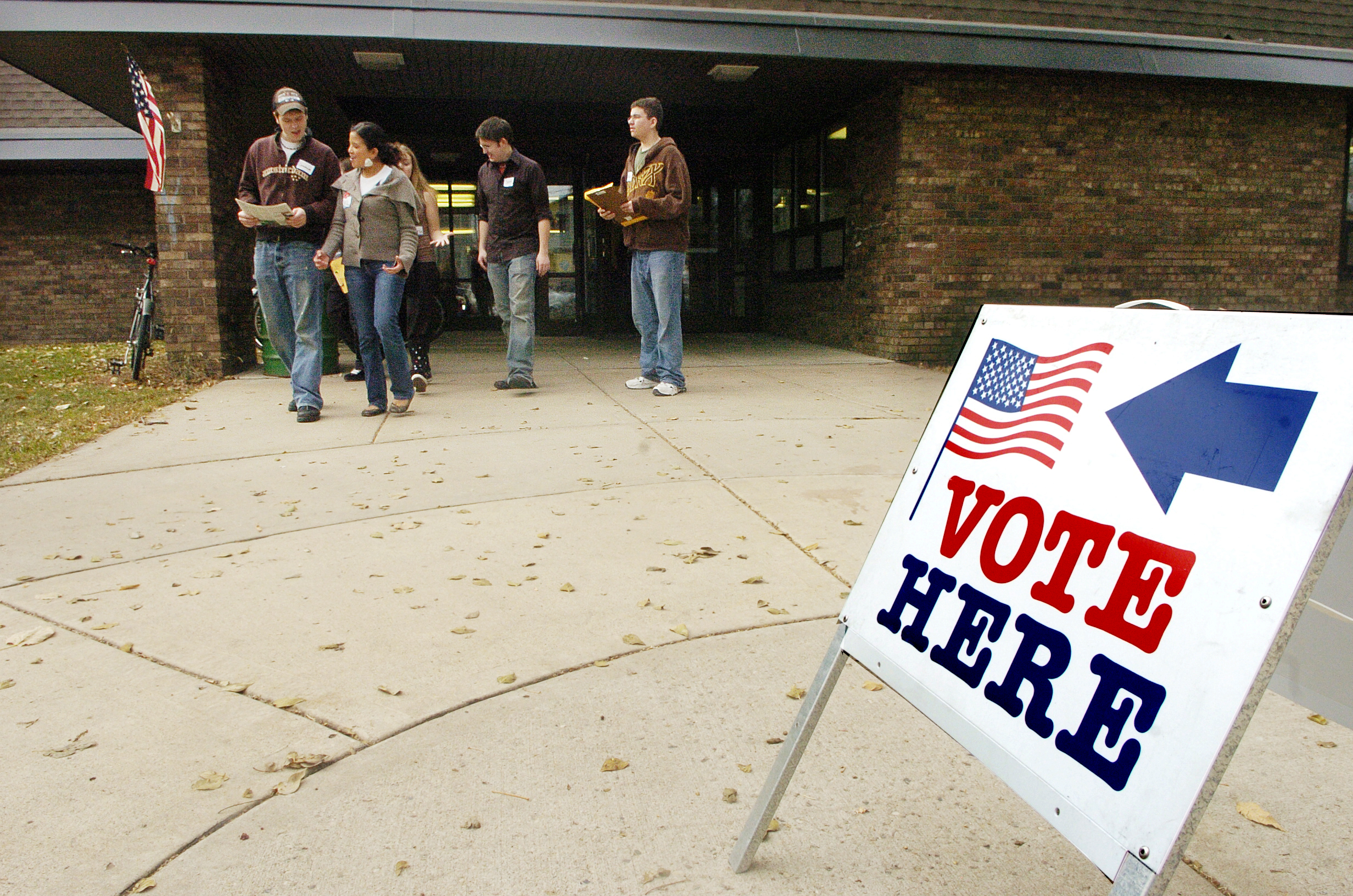Vote-by-mail issue could be hurdle to bipartisan deal on 2020 election assistance

— UPDATED at 4:19 p.m. to add upcoming meeting
A vote taken Thursday morning on a bipartisan agreement to change how some Minnesotans could cast their 2020 primary and general election ballots proved divisive because of things division members could not control.
On an 11-7 party-line vote, the House State Government Finance Division approved HF3499, as amended, that would, in part, establish changes local governments could make for the upcoming elections in wake of the COVID-19 pandemic.
Work over the previous weekend — including members from both parties and Secretary of State Steve Simon — resulted in a compromise on HF3499 that was expected to get strong support from the division.
“This a thoroughly negotiated, thoroughly bipartisan compromise which I support because it is something that can actually get enacted into law and give Minnesotans comfort at a time of a pandemic,” Simon said during the remote hearing.
Among provisions in the bill, sponsored by Rep. Michael V. Nelson (DFL-Brooklyn Park), are permitting counties or municipalities to change polling place locations until July 1, extending the time for absentee ballots to be processed, allowing candidates to file certain election-related documents electronically and authorizing federal Help America Vote Act money for election administration and security.
Mail-in balloting is not part of the agreement, which, it seems, has rankled House DFL leaders.
The bill is scheduled to be heard April 29 by the House Ways and Means Committee; however, members indicated the plan is now for HF1603, an omnibus elections bill not supported by Republicans in 2019 and has yet to be acted on in 2020, to become the body’s elections bill.
Simon said he learned of the change in plans late Wednesday via a text from Rep. Jim Nash (R-Waconia).
“The speaker of the House, the majority leader apparently have given directions that the position of the House is going to be the all-mail balloting and a good number of other things in HF1603,” Nash said. “From my seat, that casts a huge shadow over this bill.”
For many years, elections bills were a bipartisan effort that stood on their own.
“Developments outside this amendment certainly break with that tradition,” said Rep. Tony Albright (R-Prior Lake).
Some might argue that change intensified with HF1603. According to a bill summary from the nonpartisan House Research Department, provisions in the proposal come from 20 bills sponsored by a DFL member and one from a Republican.
“I want all of you to think really hard about Minnesota voters and what we need to do for elections,” said Rep. Raymond Dehn (DFL-Mpls), who chairs the House Subcommittee on Elections. “I certainly understand the disappointment of some members as a result of the decisions of the majority leadership. I think [HF3499] is a good bill. This is evidence of some good work and what can happen when we all enter into a discussion and negotiation on something based on putting the people of Minnesota first. … We’ll have another time and another day to talk about some of the other issues that have been brought up.”
The division is now scheduled to meet remotely at 2 p.m. April 27 to take up a delete-all amendment to HF1603 that would allow mail voting by all Minnesotans for the 2020 state primary and general elections.
Nash thanked Nelson and Dehn for their work in “honestly negotiating” and acknowledged the change of course is not their doing.
“This is a game of three-card monte from House leadership that we were all negotiating this bill,” Nash said. “It was not everything that everybody wanted. We’ve all said that. This was literally a change of the game … where leadership decided they’re going to shuffle up the walnut shells and try to take it out from underneath us. I think this is a very dishonest action by them and sort of shady.
“What this says in the larger picture is that irrespective of what members may negotiate in good faith with other members, leadership can capriciously snap their fingers and decide to take what is a bipartisan bill and to take it in a completely different direction.”
The companion, SF3548, is sponsored by Sen. Ann Rest (DFL-New Hope) and awaits action by the Senate State Government Finance and Policy and Elections Committee.
Getting agreement with Senate Republicans for mail-in voting could be problematic.
“I believe Minnesota can safely do both large-scale absentee voting and election day voting at polling locations with current law and some bipartisan adjustments where needed,” Sen. Mary Kiffmeyer (R-Big Lake) stated in an April 8 press release. She chairs of the Senate State Government Finance and Policy and Elections Committee.
Related Articles
Search Session Daily
Advanced Search OptionsPriority Dailies
Ways and Means Committee OKs proposed $512 million supplemental budget on party-line vote
By Mike Cook Meeting more needs or fiscal irresponsibility is one way to sum up the differences among the two parties on a supplemental spending package a year after a $72 billion state budg...
Meeting more needs or fiscal irresponsibility is one way to sum up the differences among the two parties on a supplemental spending package a year after a $72 billion state budg...
Minnesota’s projected budget surplus balloons to $3.7 billion, but fiscal pressure still looms
By Rob Hubbard Just as Minnesota has experienced a warmer winter than usual, so has the state’s budget outlook warmed over the past few months.
On Thursday, Minnesota Management and Budget...
Just as Minnesota has experienced a warmer winter than usual, so has the state’s budget outlook warmed over the past few months.
On Thursday, Minnesota Management and Budget...